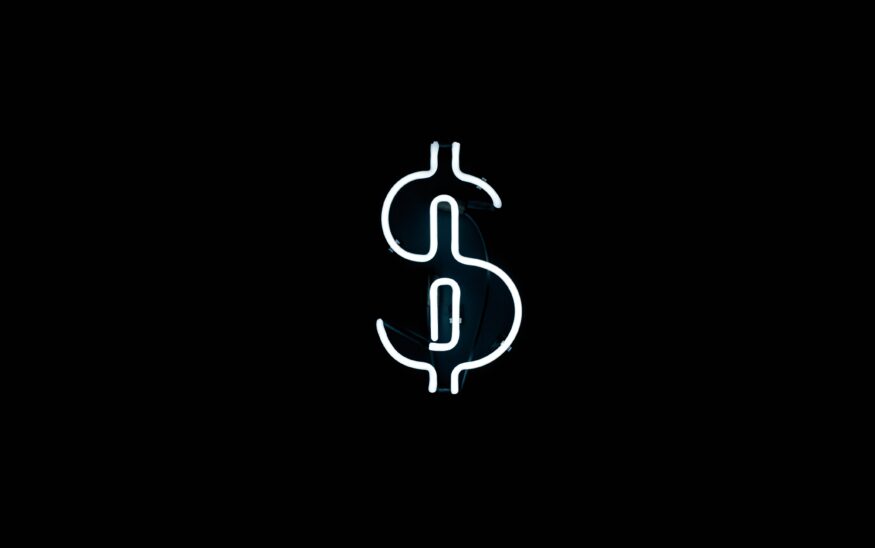Bitcoin – A Bit Shady
Determining the meaning and value of the cryptocurrency
Kurt Leyendecker //January 17, 2018//


Bitcoin – A Bit Shady
Determining the meaning and value of the cryptocurrency
Kurt Leyendecker //January 17, 2018//

I am confused. Very confused. You see, I had a silly idea to write an article about the trademark rights associated with BITCOIN. I think I have less of an understanding of all things Bitcoin now than I did before I began my research. The problem at its core is that money and currency in any form is very complicated that almost all of us take for granted. We go about our lives blissfully, never thinking about the deeper constructs of money. Currency is an abstract, intangible idea. It can be represented in the form of paper or coinage, but much of it is transferred back and forth daily among people, companies, banks and governments, simply by changes of notation in ledgers. We trust currency is worth what it says it is worth, understanding that the currency is backed by the full faith and credit of the issuing government. With some extreme exceptions, as long as the United States exists, the U.S. dollar isn't going to fail – though, its value may fluctuate.
Virtual, or cryptocurrencies, such as Bitcoin, are different than so-called fiat currencies; virtual currencies are not backed by any government. In fact, they are not backed by any one entity at all.
So, how are they backed?
The value of a Bitcoin is derived simply by the amount of money a person is willing to pay for it. What do you get when you acquire a Bitcoin? You receive a cryptographic, presumably alphanumeric key representing a Bitcoin that is recorded by many redundant electronic ledgers located on thousands – if not hundreds of thousands – of computing devices all over the globe. As the bearer of this key, you can exchange it for other currencies or at least theoretically buy something with it. Think of it this way: If money and fiat currencies are intangible, then Bitcoin and other virtual currencies are intangible intangibles or intangible squared.
Confused yet?
While pondering the whole Bitcoin phenomenon, and lamenting the fact that I did not buy a few dozen five or so years ago when each was worth a mere $20, I wondered whether anyone had registered the trademark BITCOIN, particularly in the U.S. Since no one entity owns Bitcoin and because the software (which creates Bitcoins through a process referred to as mining, and simultaneously maintains the ledgers) is open source, there really is no one to own or claim trademark rights in BITCOIN. More simply stated, trademarks exist to identify the source of goods or services in commerce, and since the source of Bitcoins and the systems surrounding them are open, there is no single identifiable source.
I checked the records at the Trademark Office and found 105 applications for marks that included the term BITCOIN had been filed in the last few years, including my favorite, WINKLEVOSS BLENDED BITCOIN INDEX. Even after being kicked to the curb by Mark Zuckerberg when he stole their idea to create Facebook, the Winklevoss twins dusted themselves off, crewed their way to a 6th place finish in the Beijing Olympics, and thereafter managed to acquire 1 percent of the all the Bitcoins in existence as of 2013.
But I digress.
Of the 105 applications, only 52 are live, of which only 21 have resulted in issued trademarks. Of the issued trademarks, none are for the term BITCOIN alone and most disclaim the exclusive right to the term BITCOIN aside from the mark as presented. A brief review of the Trademark Office actions requiring the BITCOIN disclaimer indicates the Office often found the term to be either merely descriptive or generic for a type of digital currency. Similarly, for the couple of applications for BITCOIN alone pertaining to financial services or products, the office also found the term to be generic or merely descriptive.
The uptake of all of this is that at least in the eyes of the U.S. Patent and Trademark Office, the term BITCOIN as it pertains to financial services, and especially crypto currencies, does not operate as a trademark. While the foregoing does not preclude the U.S. courts from reaching a different conclusion pertaining to an entity asserting common law trademark rights to BITCOIN, the courts are likely to grant great deference to the Office's findings.
What does all of this mean to us in the world of Bitcoin?
Well, since no one can hold a trademark to the term, it follows that someone or anyone could offer new cryptocurrencies under the name BITCOIN as well. This new bitcoin might not have any relationship to the currency otherwise known as Bitcoin, which could cause great confusion (beyond that which I am already imparting.)
Nevertheless, I am not sure those offering these new bitcoin currencies would be legally found to be counterfeiting the established Bitcoin currency since the term is likely generic and no one owns it. I suppose if you have a hankering to drop thousands and buy a Bitcoin, you will want to make sure it is an original Bitcoin and not a new bitcoin that, although it shares the name, is not the same.
As I stated earlier, I am confused, but I do know this: I am not buying any Bitcoins from anyone anytime soon.


























